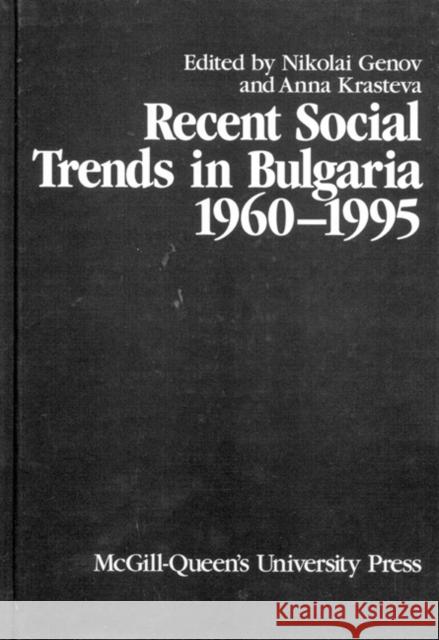Recent Social Trends in Bulgaria, 1960-1995 » książka
Recent Social Trends in Bulgaria, 1960-1995
ISBN-13: 9780773520226 / Angielski / Twarda / 2001 / 688 str.
The introduction, by Nikolai Genov, looks at the challenges posed by two transformations: the experiment with communism, which ended in failure, and the current transition to a market economy and pluralist politics. Genov concludes that the major reason for Bulgaria's critical situation is the powerlessness of its state institutions. Considering life-style, fertility, leisure and consumption, inequality, religion, economic institutions, ethnicity, norms of conduct, and family, as well as other trends, Recent Social Trends in Bulgaria, 1960B1995 is the first comprehensive presentation of the major transformations that characterize Bulgaria at the turn of the century. The contributors not only consider a broad range of social phenomena but provide an in-depth analysis of social change. This national profile provides more data supporting the hypothesis of diversification, rather than convergence, in modern societies, a hypothesis proposed by the Comparative Charting of Social Change group after documenting social change in many countries.











